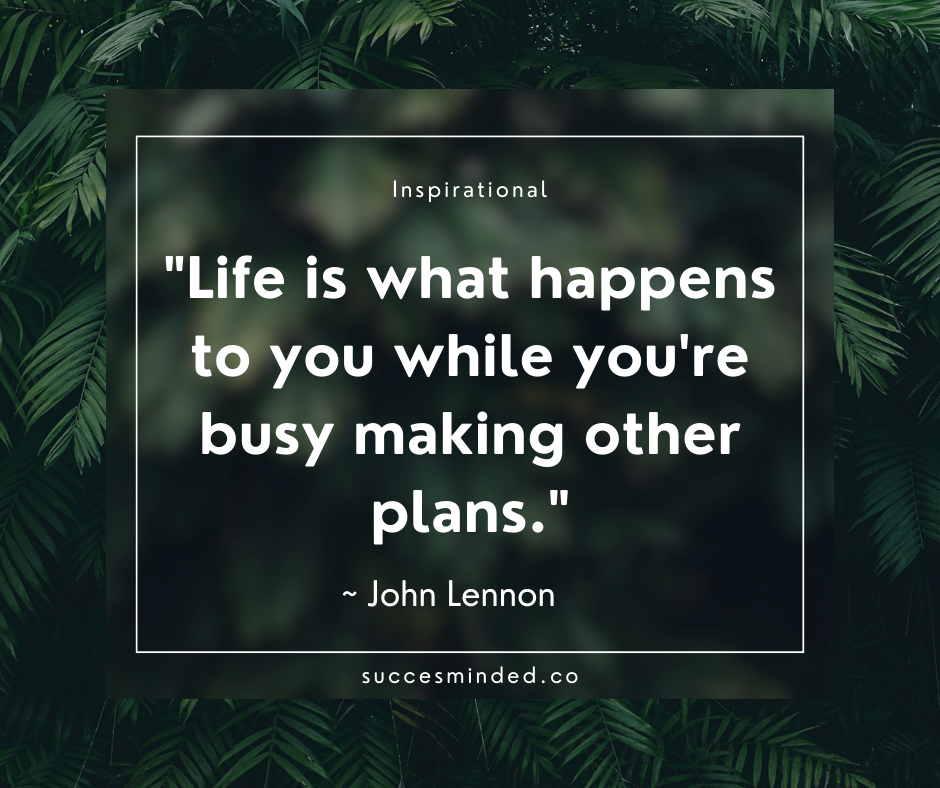Have you ever had one of those uncanny moments where something just seemed meant to be? Like meeting someone out of the blue who ends up becoming a lifelong friend…or taking a wrong turn only to stumble upon an amazing hidden gem?
Moments like these make many of us feel like fate, destiny, or some kind of grand plan is at work. The common phrase “What’s meant to be will always be” captures this sentiment.
As Vienna Teng lyrically put it in her song Stray Italian Greyhound: “Whatever’s lost will find its way in the end, if it’s meant to be.“

The Allure of Fate
It’s easy to understand the appeal of fate. In uncertain times, the idea that the universe or some higher power has a master plan can provide comfort.
People like believing that life events happen for a reason and that things will work out the way they are supposed to. This lends a sense of order and meaning to the chaos.
Philosopher Deepak Chopra summed it up well: “At the level of spirit, everything is always unfolding perfectly, whether it looks that way or not.”
Having faith in fate also allows people to let go of control and anxiety around trying to orchestrate every detail of life. It gives permission to go with the flow and stop fighting the current.
As the Serenity Prayer reminds us, there are some things we cannot change. Believing these things are “meant to be” can help people accept what is beyond their power.
Potential Problems with Leaving Everything to Fate
But taken too far, putting too much stock in fate can also lead to harmful passivity and inaction. After all, if everything is predestined, what’s the point of striving for goals and dreams?
This belief can become a self-fulfilling prophecy where people stop trying because they think, “If it’s meant to happen, it will happen.”
As Seneca noted: “Luck is a matter of preparation meeting opportunity.” We have to do our part too.
Over-relying on fate also removes personal accountability. People can use it as an excuse for poor choices by claiming “it was just meant to be.”
And always expecting life to unfold according to some grand plan can leave people frustrated when things don’t go how they expected.
As John Lennon reminded us: “Life is what happens to you while you’re busy making other plans.”

Reframing “What’s Meant to Be Will Always Be”
So how can we balance believing in fate while also recognizing our free will? The key may be reframing phrases like “what’s meant to be will always be” in a more empowering way.
For one, don’t take the saying too literally. You can have faith that the universe is supporting you, without passively waiting around for good fortune.
This outlook is not about predestination but cultivating inner trust that things will work out the way they should.
You can believe events happen for a reason without rigid expectations of what “should” happen. Life requires flexibility.
With this mindset, setbacks or failure simply mean something better awaits down the line. As Steve Jobs said: “You can’t connect the dots looking forward; you can only connect them looking backwards.”
Tips for Applying a “What’s Meant to Be” Mindset
Here are some ways to practice this belief in a balanced, proactive way:
- Let go of what you can’t control. Don’t force situations that clearly aren’t working. Release, forgive, and move forward.
- Focus your efforts on what is within your power each day. Tend your own garden well.
- Be open to unexpected blessings and turns in the road. Don’t get rigidly attached to one vision of how life should go.
- Have faith that everything will work out as it should in due time. But avoid using this belief to justify passivity or poor choices.
- Take action each day to manifest your dreams while also trusting timing and letting go of “my way or the highway” thinking.
- Remember that while reversing circumstances may be beyond you, you always have power over your attitude and perception.
As Captain Jean Luc Picard wisely put it in an episode of Star Trek TNG: “It is possible to commit no mistakes and still lose. That is not weakness; that is life.”
Sometimes things just don’t work out how we hoped, but have faith that you will end up where you are meant to be. The dots only connect looking backward.
Final Thoughts
At the end of the day, “what’s meant to be will always be” is a phrase that points to the ultimately unknowable mysteries of life.
It’s about cultivating inner faith and trust vs. pure passivity. With effort and openness, we can believe we are putting ourselves on the path we are meant to walk, trusting that where it leads will be just right, even if it’s not what we originally pictured.
Life never unfolds exactly as we plan. But we can choose to believe that, on some level, it’s unfolding exactly as it should, leading us to become who and where we are meant to be.




Pingback: Embracing Destiny: Understanding 'What's Meant to Be Will Always Find a Way' – Success Minded